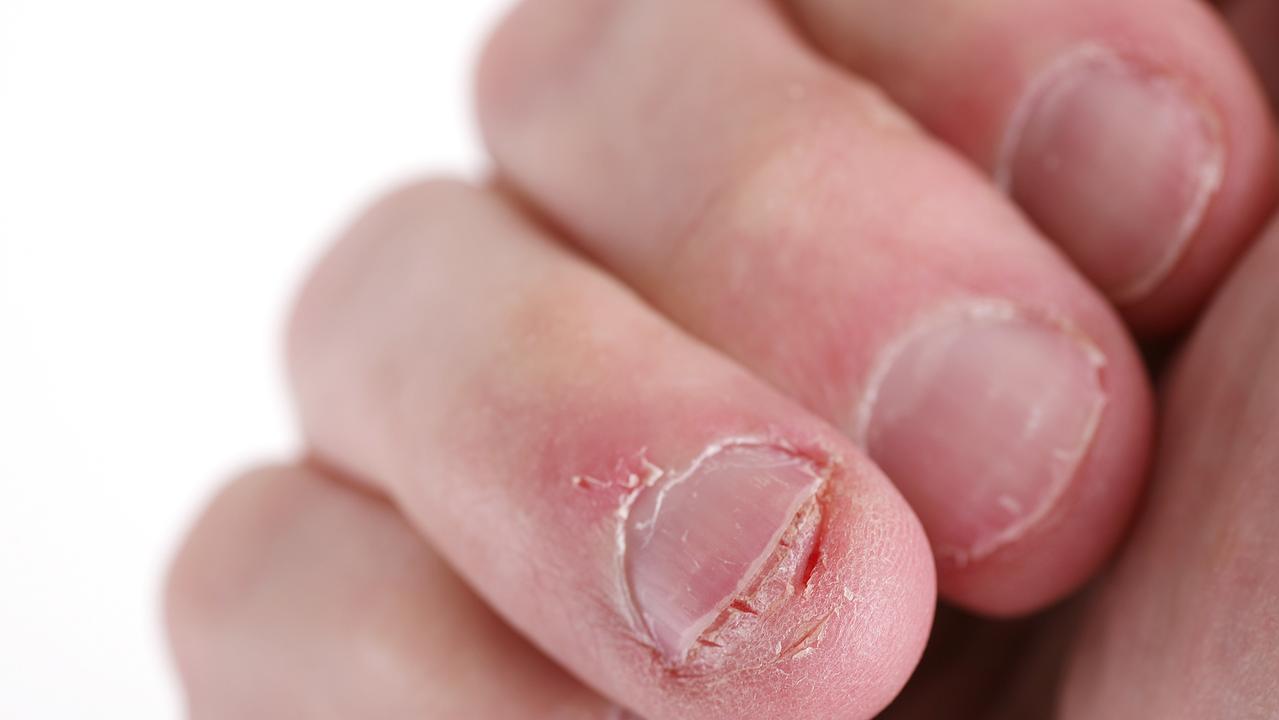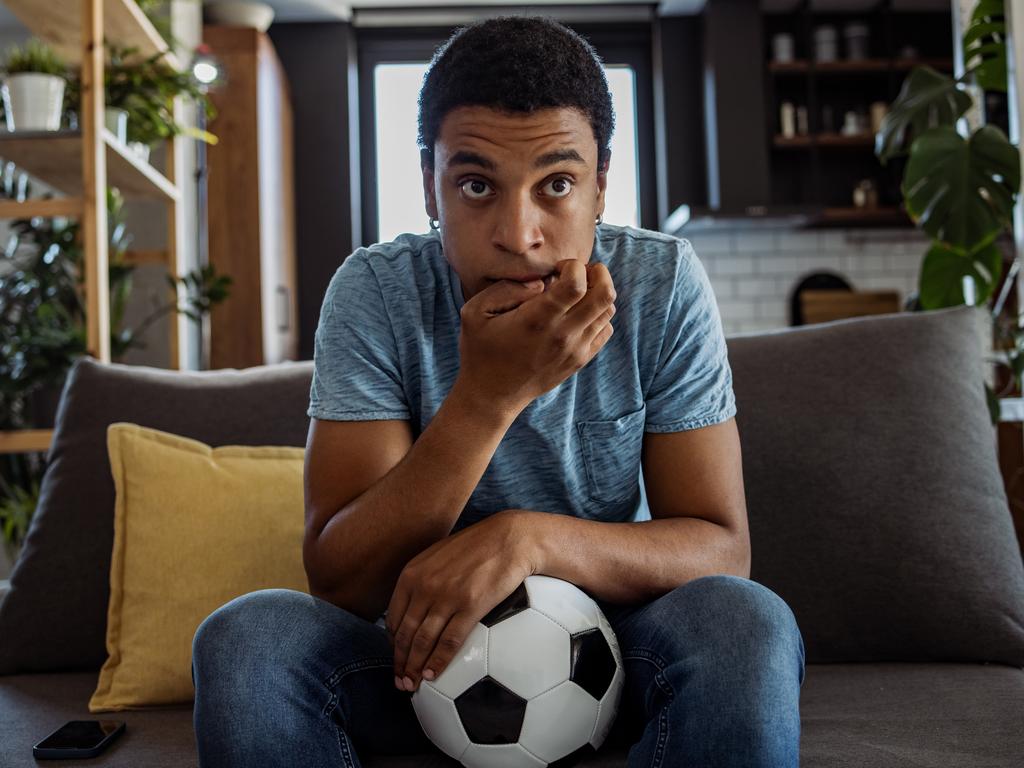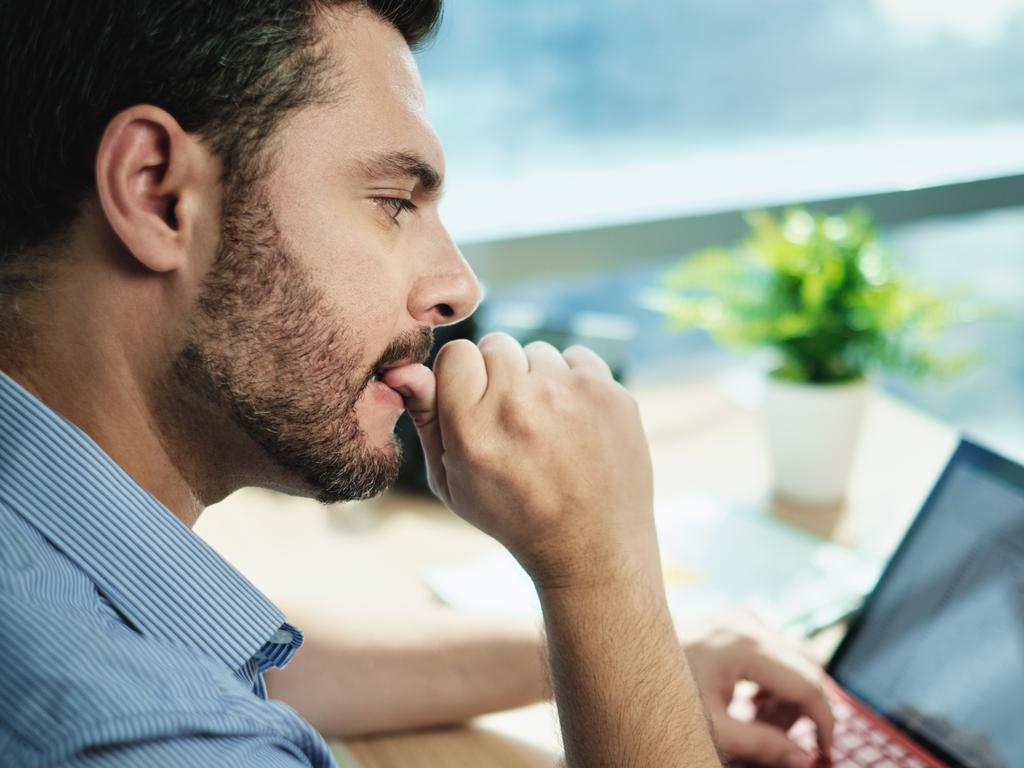‘Is biting my nails really that bad for me?’
Too many Aussies have a habit called onychophagia – and they don’t even know it. The reality of what it means is grim.
Health
Don't miss out on the headlines from Health. Followed categories will be added to My News.
Welcome to Ask Doctor Zac, a weekly column from news.com.au. This week Dr Zac Turner explains why nail biting is worse for us than we think.
QUESTION: Hi Dr Zac, I am one of those weird people who loves to bite their nails! I’ve been told so many reasons why it’s bad for me, but I can’t help it! Is it really that bad for me? If so, why? How can I stop biting my nails? – Lillian, 23, Melbourne
ANSWER: Hi Lillian, when was the last time you licked a toilet seat? How about the last time you rubbed your food on the ground before eating it? These sound like ridiculous questions, but you are essentially doing the same thing when you bite your nails!
Did you know that our hands are among the dirtiest parts of our bodies in regards to cell growth? If you are doubting this then for the next 30 minutes take stock of what you touch, then think about who and what else might have touched that as well.

In medical school and in nursing school we were made to put a fluorescent dye on our hands. We thought it was an instant handwash but we found out several minutes later, with the aid of a UV light, just how many things we had touched in that short time. This was so important for us doctors in training – and I wish they taught this trick more widely in schools. Plus it showed us all the places on our hands that we had missed when washing. Pro tip: our nails and our knuckles were by far the least cleaned areas.

Lillian, you have a habit called onychophagia. There’s no clear reason why some people bite their nails and others don’t, but here are some suggestions:
• Frustrating, boredom or impatience
• Temporary relief from nervousness and anxiety
• It can also be a symptom of mental health conditions like ADHD, OCD or anxiety
When I notice my patients are nail biters, I remind them of the germs beneath their nails. At any given time, there is an average of 50,430 live bacteria per nail – that’s 18 times more bacteria that is currently living on a toilet seat. Yuck! The average toilet seat has around 2850 live bacteria. Wash your hands, unless you don’t have a problem eating off a toilet seat!

Do you ever wonder how kids get worms? It happens when they scratch their bottom, causing eggs to collect under their fingernails. The child then puts the eggs in their mouth when eating. They can survive for two weeks underneath your nails. Think twice before scratching your bum!
Repeated nail biting can make the skin around your nails feel sore, and it can damage the tissue that makes nails grow, resulting in abnormal-looking nails. Chronic nail biting can also leave you vulnerable to infection as you pass harmful bacteria and viruses from your mouth to your fingers and from your nails to your face and mouth.
To help you stop biting your nails, here are a few tips:
• Apply bitter-tasting nail polish, which you can find at chemists and pharmacies
• Get regular manicures
• Replace the habit with another one, such as playing with a stress ball or putty
• Identify your triggers – is it when you are thinking, stressed or overwhelmed?

All habits start somewhere and it is good to get to the root cause. I always recommend chatting to your GP, and if possible your counsellor or psychologist. These experts are trained to give strategies for breaking bad or making good new habits.
For some people, nail biting may be a sign of a more serious psychological or emotional problem. If you’ve repeatedly tried to quit and the problem persists, consult a doctor. If you bite your nails and develop a skin or nail infection, consult a GP or dermatologist.
Got a question? Email askdrzac@conciergedoctors.com.au
Dr Zac Turner has a Bachelor of Medicine and Bachelor of Surgery from the University of Sydney. He is both a medical practitioner and a co-owner of telehealth service, Concierge Doctors. He was also a registered nurse and is a qualified and experienced biomedical scientist along with being a PhD Candidate in Biomedical Engineering.
Originally published as ‘Is biting my nails really that bad for me?’









